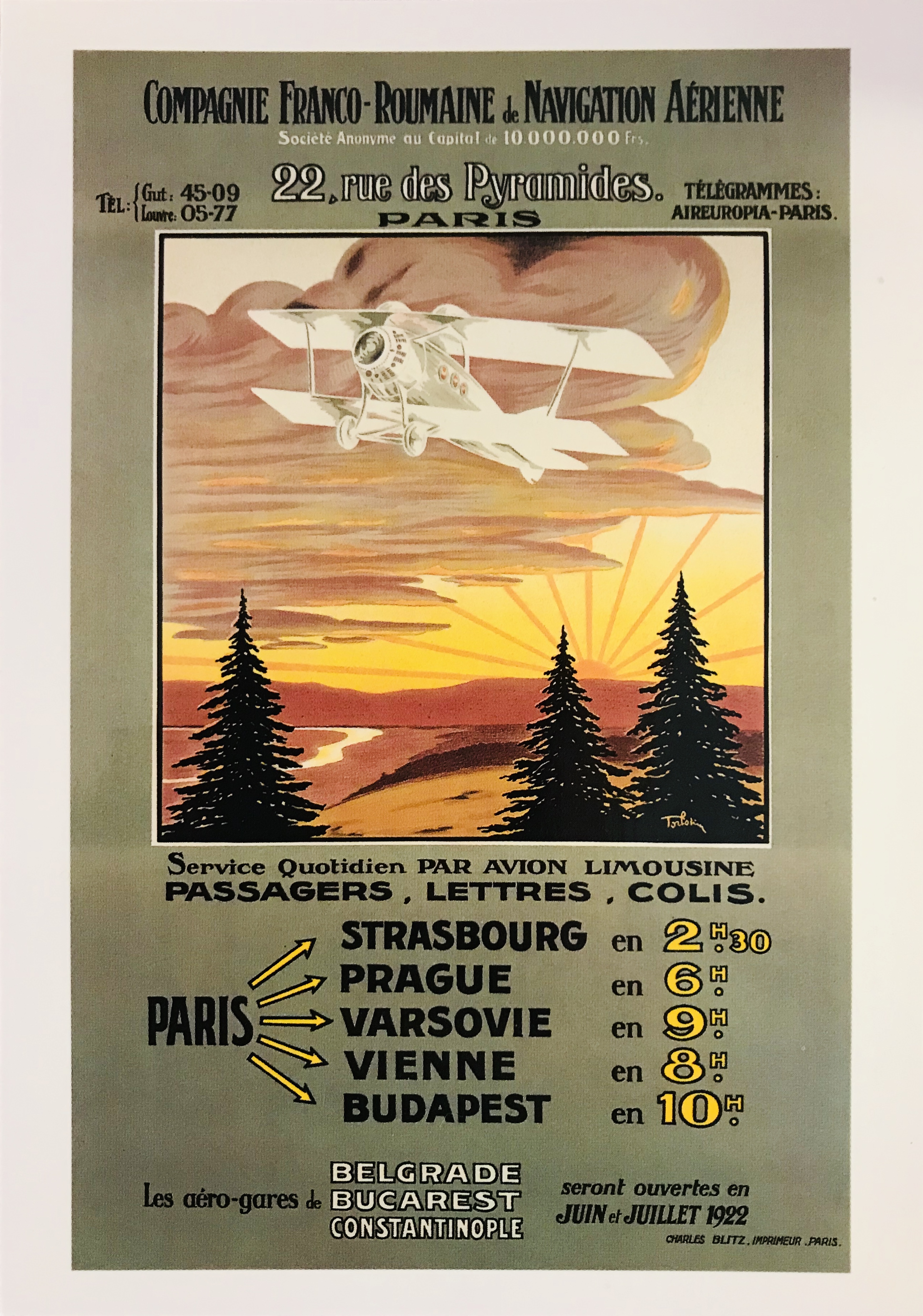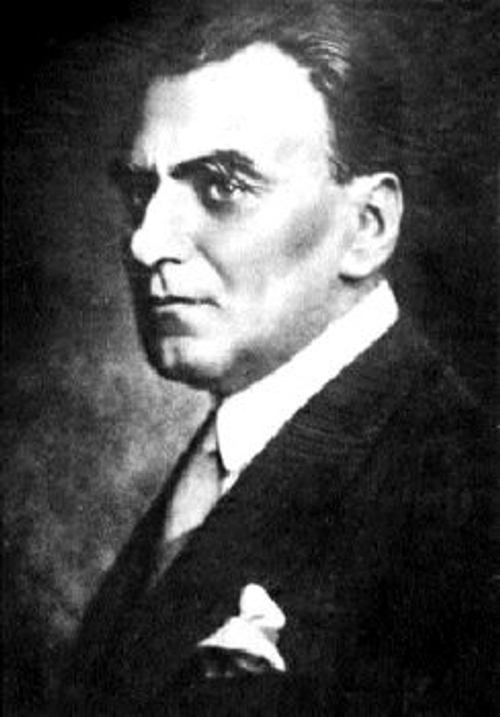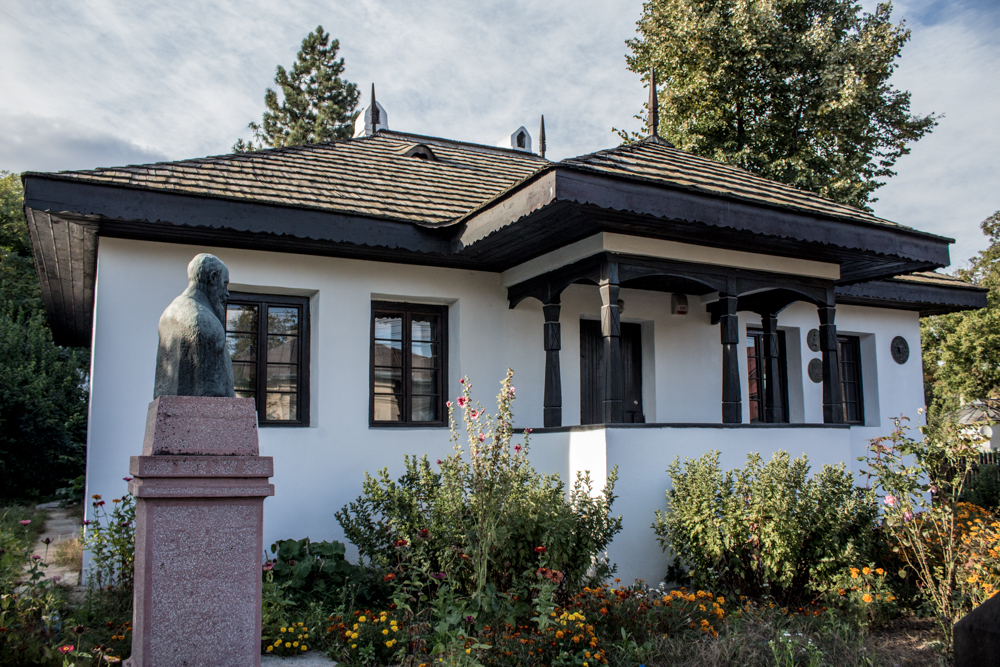|
Aristide Blank
Aristide or Aristid Blank, also spelled Blanc or Blanck (January 1, 1883 – January 1, 1960), was a Romanian financier, economist, arts patron and playwright. His father, Mauriciu Blank, an assimilated and naturalized Romanian Jew, was manager of the (BMB), a major financial enterprise. Aristide took up jobs within the same company, and, after seeing action in the Second Balkan War and World War I, began expanding its investments, branching out into maritime transport and founding CFRNA/CIDNA airlines. This period witnessed his attempt at setting up a press empire around the twin dailies ''Adevărul'' and '' Dimineața'', and his brief engagement with '' Epoca''. Inheriting his father's position at the BMB, Blank expanded its activities and expenditures, setting aside money for graft, and allowing his staff to engage in accounting fraud. By 1923, he was also engaged in Romanian nationalist politics, sponsoring propaganda writings and working alongside historians Nicolae Iorga a ... [...More Info...] [...Related Items...] OR: [Wikipedia] [Google] [Baidu] |
Bucharest
Bucharest ( , ; ro, București ) is the capital and largest city of Romania, as well as its cultural, industrial, and financial centre. It is located in the southeast of the country, on the banks of the Dâmbovița River, less than north of the Danube River and the Bulgarian border. Bucharest was first mentioned in documents in 1459. The city became the capital of Romania in 1862 and is the centre of Romanian media, culture, and art. Its architecture is a mix of historical (mostly Eclectic, but also Neoclassical and Art Nouveau), interbellum ( Bauhaus, Art Deco and Romanian Revival architecture), socialist era, and modern. In the period between the two World Wars, the city's elegant architecture and the sophistication of its elite earned Bucharest the nickname of 'Paris of the East' ( ro, Parisul Estului) or 'Little Paris' ( ro, Micul Paris). Although buildings and districts in the historic city centre were heavily damaged or destroyed by war, earthquakes, and even Nic ... [...More Info...] [...Related Items...] OR: [Wikipedia] [Google] [Baidu] |
Adevărul
''Adevărul'' (; meaning "The Truth", formerly spelled ''Adevĕrul'') is a Romanian daily newspaper, based in Bucharest. Founded in Iași, in 1871, and reestablished in 1888, in Bucharest, it was the main left-wing press venue to be published during the Romanian Kingdom's existence, adopting an independent pro- democratic position, advocating land reform, and demanding universal suffrage. Under its successive editors Alexandru Beldiman and Constantin Mille, it became noted for its virulent criticism of King Carol I. This stance developed into a republican and socialist agenda, which made ''Adevărul'' clash with the Kingdom's authorities on several occasions. As innovative publications which set up several local and international records during the early 20th century, ''Adevărul'' and its sister daily ''Dimineața'' competed for the top position with the right-wing ''Universul'' before and throughout the interwar period. In 1920, ''Adevărul'' also began publishing its prestigious ... [...More Info...] [...Related Items...] OR: [Wikipedia] [Google] [Baidu] |
King Of Romania
The King of Romania (Romanian: ''Regele României'') or King of the Romanians (Romanian: ''Regele Românilor''), was the title of the monarch of the Kingdom of Romania from 1881 until 1947, when the Romanian Workers' Party proclaimed the Romanian People's Republic following Michael I's forced abdication. History The state had been internationally recognized as a principality since 1862, after the creation of the United Principalities, a personal union between Moldavia and Wallachia, at that time vassal states of the Ottoman Empire. Alexander I became ''domnitor'' (ruling prince) after the official unification of the two formerly separate states, being elected prince of both states in 1859. He was deposed in 1866 by a broad coalition of the main political parties, after which parliament offered the throne to Prince Karl of Hohenzollern-Sigmaringen who subsequently became the new "Domnitor of Romania" (as Carol I). Romania's independence from the Ottoman Empire was recognized in ... [...More Info...] [...Related Items...] OR: [Wikipedia] [Google] [Baidu] |
Carol II Of Romania
Carol II (4 April 1953) was King of Romania from 8 June 1930 until his forced abdication on 6 September 1940. The eldest son of Ferdinand I, he became crown prince upon the death of his grand-uncle, King Carol I in 1914. He was the first of the Hohenzollern kings of Romania to be born in the country; both of his predecessors had been born in Germany and came to Romania only as adults. As such, he was the first member of the Romanian branch of the Hohenzollerns who spoke Romanian as his first language, and was also the first member of the royal family to be raised in the Orthodox faith. Carol was also a fan of football, being the Romanian Football Federation's president for almost one year from 1924 until 1925. Carol's first controversy was his desertion from the army during World War I, followed by his marriage to Zizi Lambrino, which resulted in two attempts to give up the rights of succession to the royal crown of Romania, refused by King Ferdinand. After the dissolution ... [...More Info...] [...Related Items...] OR: [Wikipedia] [Google] [Baidu] |
Iron Guard
The Iron Guard ( ro, Garda de Fier) was a Romanian militant revolutionary fascist movement and political party founded in 1927 by Corneliu Zelea Codreanu as the Legion of the Archangel Michael () or the Legionnaire Movement (). It was strongly anti-democratic, anti-capitalist, anti-communist, and anti-Semitic. It differed from other European right-wing movements of the period due to its spiritual basis, as the Iron Guard was deeply imbued with Romanian Orthodox Christian mysticism. In March 1930, Codreanu formed the Iron Guard as a paramilitary branch of the Legion, which in 1935 changed its official name to the "Totul pentru Țară" party—literally, "Everything for the Country". It existed into the early part of the Second World War, during which time it came to power. Members were called Legionnaires or, outside of the movement, "Greenshirts" because of the predominantly green uniforms they wore. When Marshal Ion Antonescu came to power in September 1940, he brought the ... [...More Info...] [...Related Items...] OR: [Wikipedia] [Google] [Baidu] |
National Christian Defense League
The National-Christian Defense League ( ro, Liga Apărării Național Creștine, LANC) was a far-right political party of Romania formed by A. C. Cuza. Origins The LANC had its roots in the National Christian Union, formed in 1922 by Cuza and the famed physiologist Nicolae Paulescu. This group morphed in to the LANC in 1923. Much of LANC's ideas were framed within theological arguments which were created by Nichifor Crainic, who served as Secretary General of LANC. The swastika became the symbol of Cuza's movement and appeared in its publications, booklets and electoral programs. Cuza claimed that the symbol was purely Romanian in character and denied that LANC had copied the Nazi party's symbol. By 1927, the party banner became the flag of Romania with a swastika in the centre. The LANC became associated with extreme anti-semitism, calling for a gradual withdrawal of rights for Jews which would include the withdrawal of political rights for all Jews, the withdrawal of citize ... [...More Info...] [...Related Items...] OR: [Wikipedia] [Google] [Baidu] |
Nae Ionescu
Nae Ionescu (, born Nicolae C. Ionescu; – 15 March 1940) was a Romanian philosopher, logician, mathematician, professor, and journalist. Near the end of his career, he became known for his antisemitism and devotion to far right politics, in the years leading up to World War II. Life Born in Brăila, Ionescu studied Letters at the University of Bucharest until 1912. Upon graduation, he was appointed teacher at the Matei Basarab High School in Bucharest. When World War I began, he traveled to Germany for additional studies at the University of Göttingen. Romania's entry into the war on the Entente side prevented him from returning, but he was awarded a doctorate in philosophy in 1919 from the University of Munich. His thesis was entitled ''Die Logistik als Versuch einer neuen Begründung der Mathematik'' ("Formal logic as an attempt at a new foundation of mathematics"). Back in Romania, after another brief stint teaching, Ionescu was appointed assistant to Constantin Rădule ... [...More Info...] [...Related Items...] OR: [Wikipedia] [Google] [Baidu] |
Vasile Pârvan
Vasile Pârvan (; 28 September 1882, Huruiești, Perchiu, Huruiești, Bacău County – 26 June 1927, Bucharest) was a Romanian historian and archaeologist. Biography Vasile Pârvan came from a modest family, being the first child of the teacher Andrei Pârvan (with ancestors from Bessarabia) and of Aristița Chiriac (from Dobreni, Dobrenii Neamțului). He received the first name Vasile, as well as his uncle, Vasile Conta (his mother being the philosopher's cousin). In 1913 Pârvan married Silvia Cristescu, niece of Ioan Bogdan (historian), Ioan Bogdan, his former teacher. During World War I, he took refuge in Iași (in 1916) and then in Odessa (in 1917), where his wife died in childbirth. Passionate about the work on site, Pârvan ignored the appendicitis he suffered from. He finally arrived on the operating table, but it was too late to save his life; he died at 45 years old only, in full creative power. Education He attended primary education in Berești and high school ... [...More Info...] [...Related Items...] OR: [Wikipedia] [Google] [Baidu] |
Nicolae Iorga
Nicolae Iorga (; sometimes Neculai Iorga, Nicolas Jorga, Nicolai Jorga or Nicola Jorga, born Nicu N. Iorga;Iova, p. xxvii. 17 January 1871 – 27 November 1940) was a Romanian historian, politician, literary critic, memoirist, Albanologist, poet and playwright. Co-founder (in 1910) of the Democratic Nationalist Party (PND), he served as a member of Parliament, President of the Deputies' Assembly and Senate, cabinet minister and briefly (1931–32) as Prime Minister. A child prodigy, polymath and polyglot, Iorga produced an unusually large body of scholarly works, establishing his international reputation as a medievalist, Byzantinist, Latinist, Slavist, art historian and philosopher of history. Holding teaching positions at the University of Bucharest, the University of Paris and several other academic institutions, Iorga was founder of the International Congress of Byzantine Studies and the Institute of South-East European Studies (ISSEE). His activity also included the transf ... [...More Info...] [...Related Items...] OR: [Wikipedia] [Google] [Baidu] |
Romanian Nationalism
Romanian nationalism is the nationalism which asserts that Romanians are a nation and promotes the cultural unity of Romanians. Its extremist variation is the Romanian ultranationalism.Aristotle KallisGenocide and Fascism: The Eliminationist Drive in Fascist Europe Routledge, 2008, p. 75 Parties Current *Greater Romania Party (1991–present) * New Generation Party (2000–present) *Noua Dreaptă (2000–present) *Social Democratic Party (2001–present) * Romanian Socialist Party (2003–present) *People's Movement Party (2014–present) *United Romania Party (2015–present) *National Identity Bloc in Europe (2017–present) *Alliance for the Union of Romanians (2019–present) *Romanian Nationhood Party (2019–present) *The Right Alternative (2019–present) * Alliance for the Homeland (2021–present) *Force of the Right (2021–present) Former *Romanian National Party (1881–1926) * Democratic Nationalist Party (1910–1946) *Bessarabian Peasants' Party (1918–1923) * De ... [...More Info...] [...Related Items...] OR: [Wikipedia] [Google] [Baidu] |
Accounting Fraud
Accounting, also known as accountancy, is the measurement, processing, and communication of financial and non financial information about economic entities such as businesses and corporations. Accounting, which has been called the "language of business", measures the results of an organization's economic activities and conveys this information to a variety of stakeholders, including investors, creditors, management, and regulators. Practitioners of accounting are known as accountants. The terms "accounting" and "financial reporting" are often used as synonyms. Accounting can be divided into several fields including financial accounting, management accounting, tax accounting and cost accounting. Financial accounting focuses on the reporting of an organization's financial information, including the preparation of financial statements, to the external users of the information, such as investors, regulators and suppliers; and management accounting focuses on the measurement, ana ... [...More Info...] [...Related Items...] OR: [Wikipedia] [Google] [Baidu] |





